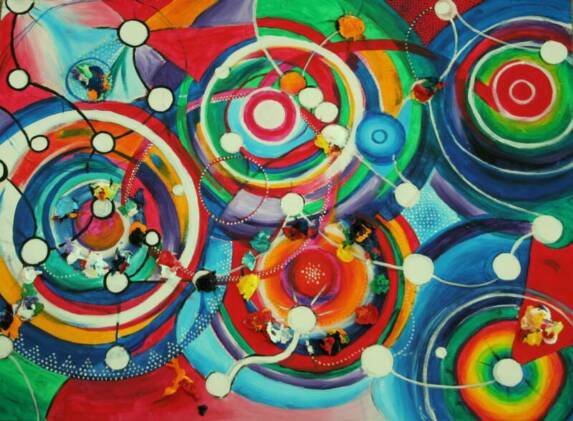Ada Sangu Mahal Sakit di Bali
Dewa’s eyes
are quiet tonight,
the light behind them hiding.
The music of his smile
subdued to silent dirge,
Dewa’s voice is soft
as a whisper
like the wings of a black midnight moth
had dusted his mouth with its sound.
Yesterday his hope spread, stretched
from his pain-aching pupa heart
with some medicine money
in pocket at last.
“But too late,” he says
and looks away
blinking quickly.
Dewa is a whisper.
He put his son in the ground this morning.
He put his son in the ground.
In the ground.
And Dewa’s eyes are quiet now,
quiet like the night,
Dewa’s eyes are quiet,
quiet and weeping.
Niskala Satu
“One day I lie there
for long sleep,” he says,
pointing to rows of rough hewn grave stones
and unmarked mounds in the village field
where his father lays,
“maybe I be dead when you come back here.”
He sees a pain split my face,
“the gods forget me,” he explains
throws up his hands.
Every day he takes money to buy offerings
visits temple for cerem-oh-ny
prays to the gods for luck
prays that they will see him
will see him and smile. Every day.
Every day he paints
the corners of his eyes white,
brushstrokes reminiscent of tears -
tears no one sees
or they see
but do not see at the same time.
He tells me,
“here government care
only for the big people,
for the white people,
the people with money."
"So maybe I get sick
maybe I have no money
maybe I be dead
when you come back
lie down for long sleep
in the grass with my father.”
My ‘no’ is a futile protest
an orchid in the wind
“no, no, only when you old,
very, very old,
only then the long sleep.”
He says, “yes, only when very, very old.”
But I can tell from his voice,
from the tension in shoulders,
from the sigh,
that he does not believe it.
And it stays with me,
echoes often in ears –
the gods forget me,
the gods forget me,
I lie down for long sleep soon
because the gods forget me.


